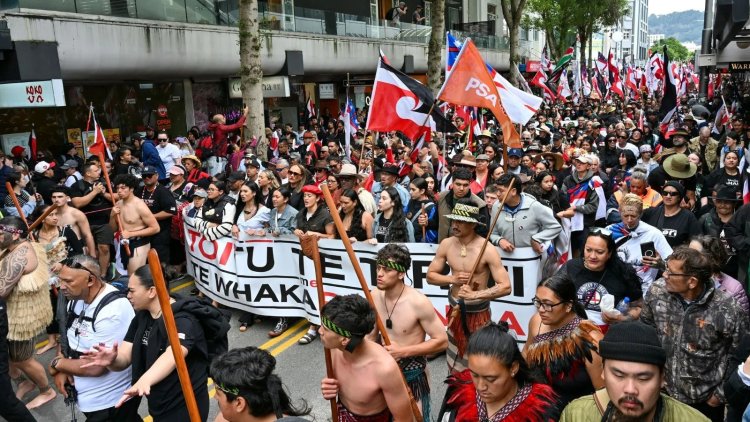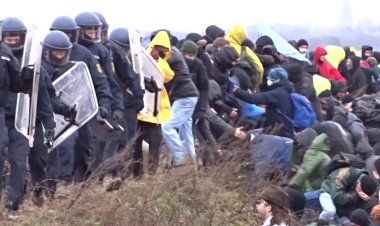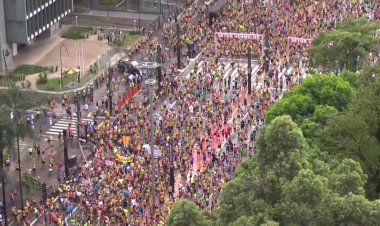Massive protest in NZ opposes Treaty Principles Bill

Tens of thousands of New Zealanders rallied in front of parliament in one of the country's largest ever protests to oppose a bill, which opponents say seeks to dilute Maori rights and threatens to set race relations back decades.
Massive crowds estimated by police at 42,000 gathered at parliament where the Treaty Principles Bill was introduced earlier this month by legislators who want to reinterpret a 184-year-old treaty signed between the British and Indigenous Maori.
A small number of politicians including ACT leader David Seymour came onto the forecourt of parliament to listen to the protesters speak, and a petition opposing the bill of 203,653 signatures was also presented to parliament.
“No government, no law has the right to debate rangatiratanga (chieftainship),” said member of parliament and Te Pati Maori co-leader Rawiri Waititi as he addressed the protesters.
A nine-day march from the furthest tip of New Zealand's north island to the capital Wellington has culminated with a rally of thousands of people who say the government is trying to dilute the rights of Māori.
The demonstrators are protesting against controversial legislation that would reinterpret New Zealand's founding treaty between the British Crown and Māori chiefs.
But the issue has become a flashpoint on race relations at a critical moment in the fraught 180-year-old conversation about how New Zealand should honor the promises made to First Nations people when the country was colonized.
Among the crowd marching to parliament was Māori Queen Nga wai hono i te po who was crowned as monarch in September.
Wellington police say an estimated 35,000 people are participating in the march, known as the Hīkoi mō te Tiriti.
In October last year, the National Party, led by Christopher Luxon, won the most seats in the country's election.
The ACT's leader David Seymour, whose party won 9 per cent of the vote, agreed to join the coalition — but only if he was permitted to draft a controversial piece of legislation called the Treaty Principles Bill.















